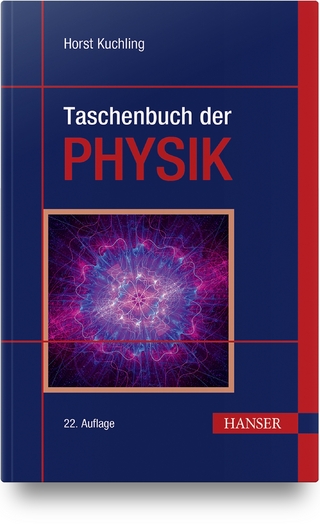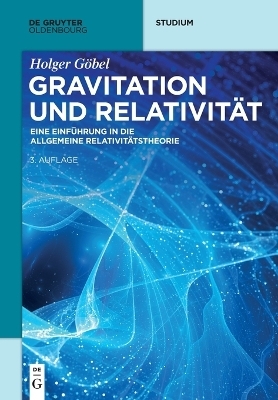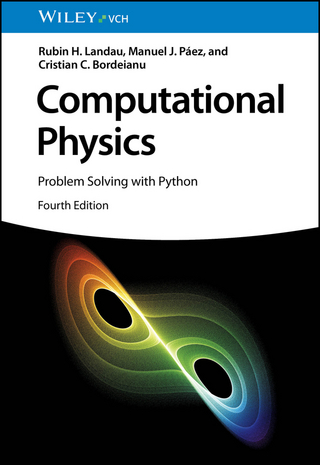
Pumping Machinery Theory and Practice
John Wiley & Sons Inc (Verlag)
978-1-118-93208-7 (ISBN)
Pumping Machinery Theory and Practice comprehensively covers the theoretical foundation and applications of pumping machinery. Key features:
Covers characteristics of centrifugal pumps, axial flow pumps and displacement pumps
Considers pumping machinery performance and operational-type problems
Covers advanced topics in pumping machinery including multiphase flow principles, and two and three-phase flow pumping systems
Covers different methods of flow rate control and relevance to machine efficiency and energy consumption
Covers different methods of flow rate control and relevance to machine efficiency and energy consumption
Hassan M. Badr is a Professor of Mechanical Engineering at King Fahd University of Petroleum and Minerals (KFUPM). He obtained his Ph.D. from the University of Western Ontario, Canada in 1977. Dr. Badr has taught many undergraduate and graduate courses in the areas of Thermodynamics, Fluid Mechanics, Heat Transfer, and Pumping Machinery. He has carried out many research projects funded by the industry in the areas of erosion, boiler thermal analysis, submersible pumps, thermal pollution, oxyfuel combustion and others. Dr. Badr has published about 100 papers in international journals (J. Fluid Mechanics, ASME J. Fluids Engineering, ASME J. Heat Transfer, Int. J. Heat Mass Transfer and others) covering a wide range of topics. He was the mechanical engineering Editor of the Arabian Journal for Science and Engineering for 18 years. Currently, he is a thrust leader in the Carbon Capture and Sequestration Technology Innovation Center at KFUPM. He received the KFUPM Distinguished Researcher Award, Academic Advisor Award, Distinguished Instructor Award and the Funded Research Projects Award. Wael Ahmed received his PhD in Mechanical Engineering from McMaster University, Hamilton, Ontario, Canada in 2005. He has four years of industrial experience with Atomic of Energy of Canada Ltd., and Nuclear Safety Solution before joining King Fahd University of Petroleum and Minerals in Saudi Arabia in 2009. He is currently working as an associate professor at University of Guelph, Ontario, Canada. During four years in the industry, he provided technical consultation to several Canadian power generation plants (OPG, Hydro-Quebec, Bruce Power, etc.) in the area of multiphase flow and flow accelerated corrosion. He is also active in research in fields related to multiphase flow and sustainable energy systems. Dr. Ahmed has authored or co-authored more than 50 papers that have appeared in various international journals and conference proceedings in addition to several technical reports, patents and two books in the area of thermo-fluids science.
Preface xi
Nomenclature xiii
1 Essentials of Fluid Mechanics 1
1.1 Kinematics of Fluid Flow 1
1.2 Conservation Principles 4
1.3 Some Important Applications 8
1.4 Dimensionless Numbers 12
1.5 Laminar and Turbulent Flows 12
1.6 Flow Separation 13
1.7 Cavitation 13
1.8 Friction Losses in Pipes and Pipe Fittings 14
References 21
2 Introduction and Basic Considerations 29
2.1 Introduction 29
2.2 Basic Definitions and Terminology 37
2.3 Determination of Flow Rate in a Pumping System 45
2.4 Operation of Pumps in Parallel and in Series 51
2.5 Similitude Applied to Centrifugal and Axial Flow Pumps 55
2.6 Flow Rate Control in Dynamic Pump Systems 62
2.7 Pump Specific Speed 65
References 72
3 Fundamentals of Energy Transfer in Centrifugal Pumps 81
3.1 Main Components of the Centrifugal Pump 81
3.2 Energy Transfer from the Pump Rotor to the Fluid 88
3.3 Theoretical Characteristic Curves 93
3.4 Deviation from Theoretical Characteristics 99
3.5 Leakage Losses 105
3.6 Mechanical Losses 106
3.7 Relationship between the Overall Efficiency and Other Efficiencies 111
3.8 Flow Rate Control in Pumping Systems 118
References 126
4 Axial and Radial Thrusts in Centrifugal Pumps 133
4.1 Introduction 133
4.2 Axial Thrust 133
4.3 Methods of Balancing the Axial Thrust 135
4.4 Radial Thrust 144
References 153
5 Common Problems in Centrifugal Pumps 159
5.1 Introduction 159
5.2 Cavitation 160
5.3 Mechanism of Cavitation Erosion 179
5.4 Solid Particle Erosion 180
5.5 Pump Surge 180
5.6 Operation at Other Than the Normal Capacity 183
5.7 Temperature Rise of Pumped Fluid 186
5.8 Change of Pump Performance with Fluid Viscosity 189
5.9 Rotating Stall in Centrifugal Pumps 190
5.10 Pump Vibration 191
5.11 Vibration Measurements 193
5.12 Vibration Signal Analysis 194
References 198
6 Axial Flow Pumps 205
6.1 Introduction 205
6.2 Definitions and General Considerations 205
6.3 Pump Theoretical Head and the Mean Effective Radius 210
6.4 Performance Characteristics of Axial-Flow Pumps 212
6.5 Axial Thrust in Axial Flow Pumps 213
6.6 Flow Rate Control in Axial Flow Pumps 214
References 218
7 Displacement Pumps 221
7.1 Introduction 221
7.2 Reciprocating Pumps 222
7.3 Pressure Variation during Suction and Delivery Strokes 225
7.4 Use of Air Vessels in Reciprocating Pump Systems 230
7.5 Performance Characteristics of Reciprocating Pumps 232
7.6 Flow Rate Control 234
7.7 Rotary Pumps 242
References 251
8 Introduction to Fans and Compressors 255
8.1 Introduction 255
8.2 Centrifugal Fans 256
8.3 Some Basic Concepts of High Speed Flow 262
8.4 Introduction to Centrifugal Compressors and Basic Considerations 272
8.5 Some Inlet Design Considerations 274
8.6 One-Dimensional Flow Analysis 276
8.7 Effect of Circulatory Flow (Slip) 279
8.8 Pressure Rise and Efficiencies 284
8.9 Sources of Losses in Centrifugal Compressors 286
8.10 Compressor Performance Characteristics 287
8.11 Compressor Surge 288
8.12 Choking in Centrifugal Compressors 291
8.13 Flow Rate Control in Centrifugal Compressors 293
References 299
9 Multiphase Flow Pumping 305
9.1 Introduction 305
9.2 Multiphase Flow through Centrifugal Pumps 333
9.3 Multiphase Pumping for the Oil and Gas Industry 340
9.4 Airlift Pump: an Example of Non-Conventional Pumping 345
References 353
10 Pump Selection Guidelines 357
10.1 Introduction 357
10.2 Bases of Pump Selection 358
10.3 Selection Based on Type of Pumped Fluid 358
10.4 Selection Based on Operating Condition 359
10.5 Selection Based on Reliability and Maintainability 361
10.6 Selection Based on Initial and Operating Cost 362
10.7 Other Factors Affecting Pump Selection 362
References 363
Index 365
| Erscheint lt. Verlag | 6.2.2015 |
|---|---|
| Verlagsort | New York |
| Sprache | englisch |
| Maße | 178 x 252 mm |
| Gewicht | 717 g |
| Themenwelt | Naturwissenschaften ► Physik / Astronomie |
| Technik ► Bauwesen | |
| Technik ► Maschinenbau | |
| ISBN-10 | 1-118-93208-0 / 1118932080 |
| ISBN-13 | 978-1-118-93208-7 / 9781118932087 |
| Zustand | Neuware |
| Haben Sie eine Frage zum Produkt? |
aus dem Bereich


